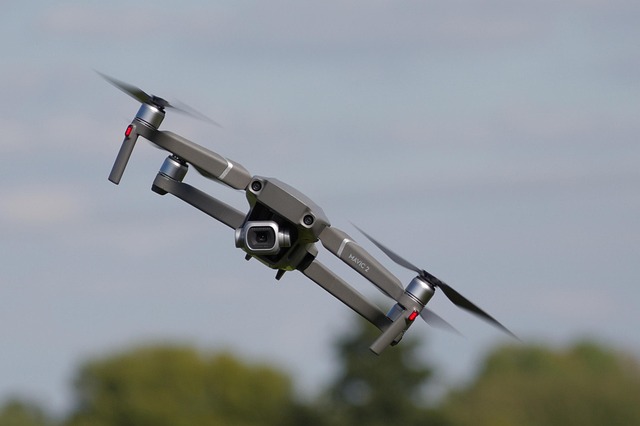# Revolutionizing Everyday Tasks: How AI Technology is Streamlining Our Lives and Work Environments
In recent years, artificial intelligence (AI) has emerged as a transformative force across various sectors, fundamentally altering the way we approach everyday tasks and work environments. From automating mundane chores to enhancing decision-making processes, AI technology is not only streamlining workflows but also freeing up valuable time for individuals and organizations alike. This article delves into the multifaceted impact of AI, exploring how it is reshaping our daily lives and professional landscapes.
## AI in Everyday Life: Simplifying Routine Tasks
Daily routines often involve repetitive tasks that can consume significant time and energy. Fortunately, AI has stepped in to alleviate this burden, offering innovative solutions that simplify our lives. Consider the emergence of virtual assistants such as Amazon’s Alexa, Apple’s Siri, and Google Assistant. These AI-driven tools can manage calendars, set reminders, and even control smart home devices, allowing users to multitask efficiently.
Moreover, the integration of AI into household chores has become increasingly prevalent. Robotic vacuum cleaners, such as the Roomba, utilize AI algorithms to navigate and clean homes autonomously. By employing sensors and machine learning, these devices adapt to their environment, optimizing cleaning paths and avoiding obstacles. Consequently, homeowners can reclaim their time for more meaningful activities, enhancing overall quality of life.
Furthermore, AI’s influence extends to personal finance management. Applications like Mint and Cleo leverage AI to analyze spending habits, provide budgeting advice, and even automate savings. By offering personalized insights, these platforms empower users to make informed financial decisions, ultimately leading to better financial health. The ability to streamline daily tasks through AI not only enhances efficiency but also contributes to a more organized and less stressful lifestyle.
## Transforming Work Environments: Enhancing Productivity and Collaboration
In the realm of work, AI technology is revolutionizing how teams collaborate and operate. Organizations are increasingly adopting AI-driven tools to boost productivity and streamline processes. For instance, project management software like Asana and Trello incorporates AI features that help prioritize tasks, allocate resources, and track progress. By automating routine project management functions, these tools enable teams to focus on strategic initiatives rather than getting bogged down in administrative tasks.
Moreover, AI is reshaping communication within organizations. Chatbots and AI-powered messaging platforms facilitate real-time communication, allowing employees to seek assistance and resolve issues swiftly. These tools can handle frequently asked questions, freeing up human resources for more complex inquiries. As a result, organizations experience improved response times and enhanced employee satisfaction, fostering a more collaborative work environment.
In addition to improving communication, AI is also enhancing data analysis and decision-making processes. Advanced analytics platforms, powered by machine learning algorithms, can process vast amounts of data, identifying trends and providing actionable insights. Businesses can leverage these insights to inform strategic decisions, optimize operations, and enhance customer experiences. By harnessing the power of AI, organizations can make data-driven choices that lead to increased efficiency and competitiveness in the market.
## The Future of AI: Opportunities and Challenges
Looking ahead, the potential for AI to further streamline our lives and work environments is immense. Emerging technologies, such as natural language processing and computer vision, promise to unlock new applications that can further enhance productivity and convenience. For instance, AI-driven translation tools are breaking down language barriers, enabling seamless communication in an increasingly globalized workforce. This capability not only enhances collaboration but also opens doors to new markets and opportunities.
However, the rapid advancement of AI technology also presents challenges that must be addressed. Ethical considerations surrounding data privacy and algorithmic bias are paramount. As organizations increasingly rely on AI systems to make decisions, ensuring transparency and fairness in these processes is crucial. Stakeholders must prioritize responsible AI development, fostering a culture of accountability and ethical standards.
Additionally, the workforce must adapt to the changing landscape brought about by AI. While automation can enhance productivity, it may also lead to job displacement in certain sectors. To mitigate these effects, organizations and governments should invest in reskilling and upskilling initiatives, preparing workers for the jobs of the future. By fostering a culture of continuous learning, individuals can remain competitive in an evolving job market.
## Conclusion: Embracing the AI Revolution
The integration of AI technology into our everyday lives and work environments is undeniably transformative. By simplifying routine tasks, enhancing productivity, and facilitating collaboration, AI is revolutionizing the way we live and work. As we move forward, embracing the opportunities presented by AI while addressing the associated challenges will be essential. Through responsible development and a commitment to ethical practices, we can harness the full potential of AI, ultimately enriching our lives and shaping a more efficient future. The AI revolution is here, and it is up to us to navigate its complexities and reap its benefits.











